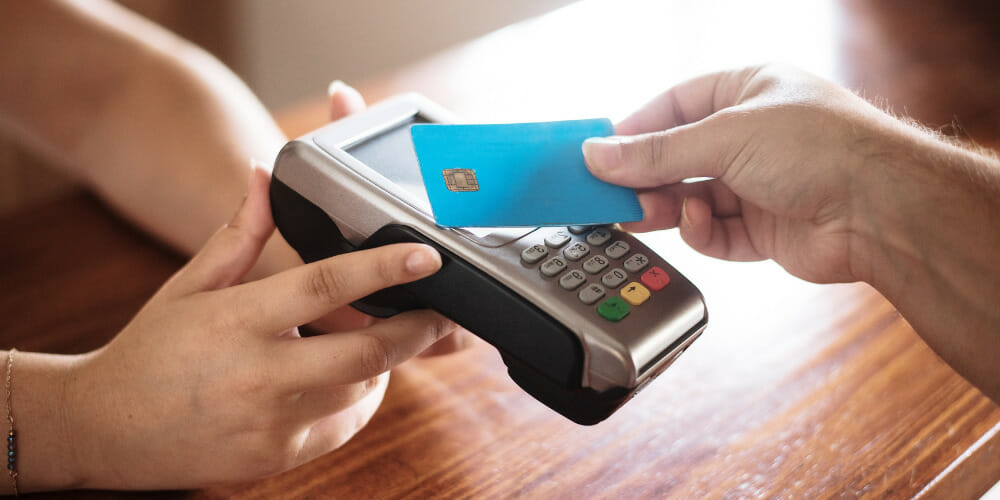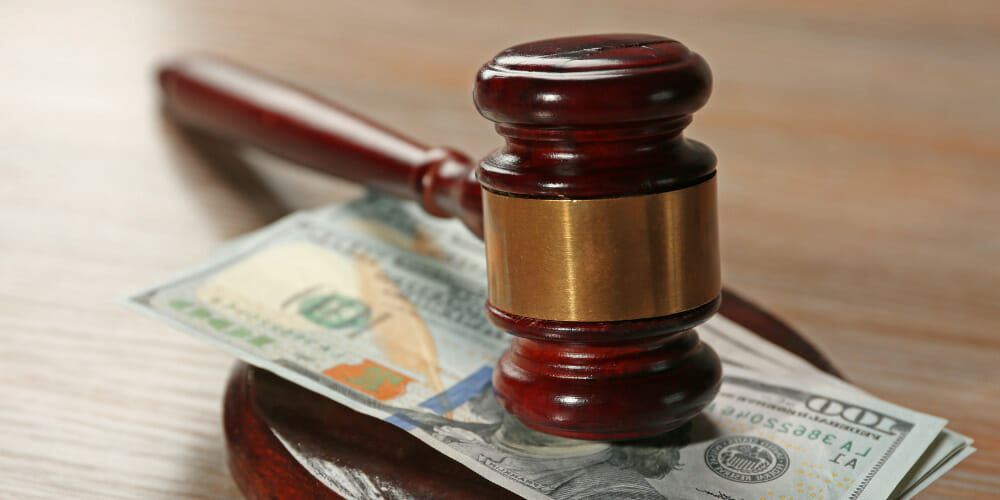Have you ever disputed a credit card charge? Maybe you didn’t recognize the charge on your statement, or perhaps you thought the purchase was unauthorized. In either case, it can be tempting to dispute the charge.
Disputing a charge without cause can hurt your credit score and even result in legal action. So if you’re not sure whether or not to dispute a charge, talk to your credit card company first – they may be able to help you resolve the issue without causing any harm.
Understanding the consequences of falsely disputing a credit card charge is important. This article will cover everything you need to know about What happens if you falsely dispute a credit card charge? So keep reading the article for more information.
What is a Credit Card Dispute?
A credit card dispute is when you dispute a charge on your credit card statement. This can happen for several reasons, including if you feel you were charged incorrectly or never received the goods or services you paid for.
You’ll need to contact your credit card issuer if you’re interested in disputing a charge on your credit card statement. They will likely have a process in place for you to follow, and they may require that you provide documentation or other information to support your dispute.
Disputing a charge on your credit card can be frustrating, but it’s important to remember that you have rights as a cardholder. If you feel like you’ve been wronged, don’t hesitate to reach out to your issuer and start the dispute process.
Credit Card Charges You Can Dispute
There are some charge types that you can dispute with your credit card company.
An unauthorized charge is any charge that you didn’t permit. This could be a mistake by the merchant, or it could be a fraud. You should contact your credit card company immediately if you see an unauthorized charge on your credit card statement.
Your credit card company should investigate the charge; if they find it unauthorized, they will remove it from your bill. You may also be entitled to refund any fees associated with the unauthorized charge.
If you’re ever unsure about a charge on your credit card statement, don’t hesitate to contact your credit card company and ask them to look into it. They can help you figure out if the charge is authorized or not.
Incorrect Charge
If you’ve been charged for something you didn’t purchase or were charged an incorrect amount, you have the right to dispute the charge with your credit card company. This is called a billing error dispute.
To start a billing error dispute, you’ll need to contact your credit card company and let them know there was a mistake on your bill. Be sure to have your account information and the specifics of the error ready when you call.
Your credit card company has to investigate your claim and correct any errors within two billing cycles (usually sooner). While the dispute is being processed, you won’t have to pay the disputed amount, and it will not be counted towards your credit limit.
If the investigation finds that you were mistakenly charged, you’ll receive a refund for the incorrect amount. If the investigation finds that you were not mistakenly charged, you’ll be responsible for paying the disputed amount, plus any interest or other fees that may have accrued.
Charges for Goods or Services not Delivered
You can dispute the charge with your credit card company if you’ve been charged for goods or services you never received. To dispute it, you’ll need to contact your credit card issuer and provide them with documentation supporting your claim. This could include a copy of your original purchase agreement, invoices, or other correspondence with the merchant.
If your credit card issuer finds it in your favor, they will reverse the charge and may also issue you a refund. Additionally, the credit card issuer may take action against the merchant, such as revoking their ability to accept credit cards.
Good or Service Incorrectly Described by Merchant
If you’ve been charged for a good or service that the merchant incorrectly described, you may be able to dispute the charge with your credit card issuer. To dispute this charge, you’ll need to contact your credit card issuer and provide them with a receipt from the merchant, an email or letter from the merchant, or any other documentation that supports your dispute. Once you’ve provided this documentation, your issuer will investigate the claim and determine whether or not the service or product was wrongfully described.
If the credit card issuer determines that your claim is correct, they will reverse the charge and issue a refund to you. You’ll be responsible for paying the charge in full if they determine that your claim was false.
Math Errors or Errors in Calculating the Total
If you spot an error in your credit card statement, don’t hesitate to contact your issuer and dispute the charge. Common errors include math mistakes or incorrect calculations of the total amount due.
If you believe there’s been a mistake on your statement, gather relevant documentation (such as receipts or correspondence with the merchant) and reach out to your issuer’s customer service department. The representative you speak to will likely ask you for basic information about the error and open up a dispute case.
In most cases, the issuer will investigate the claim and get back to you within a few weeks. If the mistake is found on the issuer’s part, they will correct the error and may even issue a refund for any overcharges. If a mistake is found on the merchant’s part, the issuer will work with the merchant to resolve the issue.
Credit Card Statements Mailed to the Wrong Address
One type of charge you can dispute is any fees incurred due to the statements being mailed to the wrong address. You could dispute that charge if you were charged a late fee because your statement was sent to the incorrect address. You can also dispute any interest charges that may have accrued on your account due to the statements being sent to the wrong address.
What is a Debit Card Dispute?
When you use a debit card, you give the bank permission to withdraw money from your account. If there is ever a problem with a purchase made with your debit card, you have the right to dispute the charges.
A debit card dispute is a claim made by a cardholder with their bank or card issuer, alleging that an unauthorized transaction was made on their debit card or that a transaction was not processed as agreed.
There are several reasons why a cardholder might dispute a transaction on their debit card, including:
- Unauthorized transactions: If a cardholder believes that an unauthorized transaction was made on their debit card, they can dispute the charge with their bank or card issuer.
- Transaction not processed as agreed: If a cardholder feels that a transaction was not processed as decided (for example, if they were charged the wrong amount), they can dispute the charge with their bank or card issuer.
- Merchant error: If a cardholder believes that a merchant made an error when processing a transaction (for example, if they were charged for an item that was never received), they can dispute the charge with their bank or card issuer.
If you are a cardholder who would like to dispute a transaction on your debit card, don’t hesitate to contact your bank or card issuer for more information.
Requirements for a Credit Card Dispute
You should know a few things if considering disputing a credit card charge.
Transaction Must Be Over $50
First and foremost, the transaction in question must be for more than $50. This is generally the case with most credit card companies, though some exceptions may exist. This is generally the minimum amount that credit card companies are willing to investigate. Of course, if you feel you’ve been wronged in a transaction for less than $50, you can always try disputing the charge. But your chances of success are much lower.
Dispute Must Be in Writing
The dispute must be in writing. You’ll need to send a letter to your credit card issuer explaining why you’re disputing the charge and requesting a refund. Ensure all relevant information, such as your account number, the charge date, and the amount in question.
Resolve it First with the Merchant Before Disputing
If you have a problem with a purchase made with your credit card, your first step should be to try and resolve the issue with the merchant. You can file a dispute with your credit card company if that doesn’t work. But some requirements must be met to file a dispute, and if you don’t meet them, your dispute may not be successful.
Requirements For CFPB
If you have a dispute with a credit card company, you may be able to file a complaint with the Consumer Financial Protection Bureau (CFPB). The CFPB is a federal agency that regulates the credit card industry and handles complaints about credit card companies.
To file a complaint with the CFPB, you will need to provide:
- Your name, address, and contact information
- The name of the credit card company
- A description of your problem
- The dollar amount of the dispute
When to File a Credit Card Chargeback?
If you’re considering filing a credit card chargeback, you should know a few things first. Here’s what you need to know about chargebacks and when they may be appropriate.
What is a Chargeback?
A chargeback is a refund processed through your credit card issuer rather than the merchant. The cardholder initiates chargebacks, which can be requested for various reasons, including fraud, merchandise not received, or defective goods or services.
When Can I File a Chargeback?
You can usually file a chargeback if you’ve tried to resolve the issue with the merchant first and cannot come to a satisfactory resolution. However, there are some instances where you may be unable to file a chargeback. For example, if you’ve made a purchase using a debit card, you generally won’t be able to file a chargeback (since debits are processed differently than credits).
Now, here is when to file a chargeback:
If Covered Under FCBA
The Fair Credit Billing Act (FCBA) is a federal law that protects consumers from billing errors, including unauthorized charges. The FCBA gives you the right to dispute certain charges and obtain a refund from your credit card issuer. To take advantage of the protections afforded by the FCBA, you must notify your credit card issuer within 60 days of the date of the first billing statement on which the error appeared.
If You’ve Worked Your Way Up the Chain and Failed
If you’ve followed all the proper channels and still haven’t resolved your problem, it might be time to file a credit card chargeback. This is when you ask your credit card issuer to reverse a charge you’ve made.
There are a few things to keep in mind before taking this step.
- You’ll need proof that you’ve tried to resolve the issue with the company. This means having documentation of your attempts, such as emails or phone logs.
- You should know that filing a chargeback can sometimes be a last resort. This is because it can negatively impact the merchant, even if they were in the wrong.
- You have between 60 and 120 days from the transaction date to file. But it’s always best to check with your credit card issuer to be sure.
If the Merchant Asks You to File a Dispute
If the merchant asks you to file a dispute, it’s likely because they’re disputing the charges with their bank or credit card processor. This means that the merchant claims that you never made the purchase, returned the merchandise, or had some other problem with the transaction.
You can still file a chargeback if you believe that the merchant is wrongfully asking you to file a dispute. But remember that this may result in the merchant taking legal action against you. If you’ve simply changed your mind about a purchase, you may not be able to file a credit card chargeback. But you can always try contacting the merchant directly to see if they’ll refund your money.
What is Fair Credit Billing Act? [FCBA]
The Fair Credit Billing Act (FCBA) protects consumers from unfair or fraudulent credit card practices. If you have a problem with a purchase you made with your credit card, you can file a dispute with your credit card issuer.
There are a few things that you need to know before you file a credit card chargeback.
- First, you should only file a chargeback if you have a valid reason.
- Second, you must provide supporting documentation to the credit card issuer.
- Third, you may be responsible for paying a fee if the chargeback is found unwarranted.
How to Dispute a Charge on Credit Cards?
If you have been wrongly charged on your credit card, don’t worry – you can dispute the charge with your credit card issuer. Here’s what you need to do:
- Call the customer service number on the back of your credit card. Tell the representative that you would like to dispute a charge.
- The representative will then ask for some basic information, such as your name, credit card number, and the date of the charge in question.
- Next, you’ll need to explain why you are disputing the charge. Ensure all relevant documentation (e.g., receipts, invoices, etc.) supports your claim.
- Once you have provided the representative with all the necessary information, they will open up a dispute case for you.
- You should receive a response from your credit card issuer within 30 days. If the issuer finds it in your favor, the disputed charge will be removed from your bill. If not, you will be responsible for paying the charge.
Following the steps above, you can dispute a charge with your credit card issuer and hopefully get the charges reversed.
How Does a Credit Card Chargeback Work?
The process is relatively simple if you decide to file a chargeback. You’ll just need to co your credit card issuer and provide them with the necessary documentation. They will then investigate the claim and make a decision. If the chargeback is granted, the issuer will reverse the charge, and you’ll get your money back. Remember that this is a temporary solution, and the merchant may still try to collect the debt from you.
What Does Chargeback Mean For Merchants?
The card issuer will notify you of chargeback if you’re the merchant. You’ll then have the opportunity to dispute the chargeback. If you do not dispute the chargeback, or if your dispute is unsuccessful, you’ll be responsible for the refund and the chargeback fee.
Chargebacks can be costly for merchants, so taking steps to prevent them from happening is important. Make sure you have clear policies for returns and refunds, and ensure your prices are accurate. You should also quickly keep track of your inventory to resolve credit card disputes about missing merchandise.
Chargebacks are generally processed within a few weeks, but it can take longer for the final decision to be made. If you’re the merchant, you’ll be notified of the outcome of the chargeback. If you’re the cardholder, you’ll get a notification if the issuer decides in your favor.
Reasons For A Chargeback
There are several reasons why a chargeback may be initiated.
- The most common cause is if the cardholder disputes the charges. This can happen if the cardholder didn’t receive the merchandise or if the merchandise was damaged.
- Other reasons for chargebacks include fraudulent activity, such as unauthorized charges, and billing errors, such as incorrect prices or quantities.
Difference Between a Chargeback and a Dispute?
When it comes to credit card transactions, you might come across a few different terms. Two of these terms are “chargeback” and “dispute.” So, what is the difference between a chargeback and a dispute?
A chargeback is when a customer requests a refund from their credit card company for a purchase that they feel was unauthorized, fraudulent, or otherwise not satisfactory. The credit card company will then investigate the chargeback and make a decision on whether or not to grant the refund.
On the other hand, a dispute occurs when a customer disputes a charge with their credit card company. This can be for any reason, including unauthorized or fraudulent charges, incorrect charges, or simply because the customer is not happy with the purchase. The credit card company will then investigate the dispute and make a decision on whether or not to grant the refund.
Tips on Increasing the Chance of Success in a Dispute
When it comes to chargebacks, there are a few things that you can do to increase your chances of success.
Avoid Filing a “Friendly” Fraud Chargeback
Friendly fraud occurs when a customer intentionally files a false chargeback to get a refund for a purchase they made. In many cases, friendly fraudsters will claim that they never received the product they ordered, even though they may have already received and used it.
If you are considering filing a chargeback, be sure first to consider whether or not the charge is actually fraudulent. If you believe the charge is legitimate, you should proceed cautiously and gather as much evidence as possible to support your case. Filing a friendly fraud chargeback will likely result in a loss for your business, so it is best to avoid it if possible.
Avoid Frequent Chargebacks
Chargebacks can be very costly for businesses and damage your reputation with your credit card processor. You could even be banned from using credit cards altogether if you have too many chargebacks. That’s why it’s so important to avoid them if at all possible.
Here are a few tips to help you avoid chargebacks:
- Keep excellent records of all your transactions. This way, if there is ever a dispute, you’ll be able to quickly and easily provide the credit card company with all the information they need to decide in your favor.
- Make sure your customers are happy. If a customer is unhappy with a purchase, try to resolve the issue before they resort to filing a chargeback.
- Be upfront about prices and fees. Don’t try to hide anything from your customers; if they feel like they’ve been misled, they’re much more likely to file a chargeback.
- Offer multiple payment options. Some customers may be more likely to file a chargeback if they don’t have other options. By offering various payment methods, you can give them the flexibility they need to feel comfortable making a purchase.
- Respond quickly to chargebacks. The sooner you respond to a chargeback, the better. The longer you wait, the more likely the customer will give up, and the credit card company will rule in your favor.
Gather & Collect Important Documents & Records
If you’re involved in a dispute, there are several things you can do to give yourself the best chance of success. One of the most important is ensuring you have all the relevant documents and records gathered together. This may seem an obvious step, but it’s one that many people overlook or don’t put enough time into.
The more documentation you have, the better. This includes everything from correspondence with the other party to financial records. If there are any witnesses to what happened, get their contact information. The more evidence you have, the stronger your case will be.
Find the Credit Memo
The credit memo is a document that contains important information about the transaction, including any errors or discrepancies. This information can be vital in persuading the company to reverse its decision and refund your money. If you’re involved in a dispute with a company, one of the best things you can do to increase your chances of success is to find the credit memo.
There are a few ways to find the credit memo.
- The first is to contact the company directly and ask for it. This may not always be possible, but it’s worth a try.
- Another option is to search for the document online. Often, companies post credit memos on their websites or online forums.
- Finally, you can try contacting the credit card issuer. In some cases, the issuer may have a copy of the memo.
What is Credit Card Dispute Fraud?
When you dispute a charge on your credit card, the credit card issuer investigates the claim and decides whether or not to refund your money. This process is called a credit card dispute. If the issuer decides that the charge was fraudulent, they will refund your money and may also cancel the card. This is why it’s essential to be careful when disputing a charge on your credit card.
Fraudulent disputes can lead to criminal charges, including identity theft and fraud. You could face jail time and hefty fines if you’re found guilty of credit card dispute fraud. To avoid becoming a victim of credit card dispute fraud, never give your credit card information to anyone you don’t know and trust.
Be sure to keep your credit card statements in a safe place where you can review them regularly. And if you see a charge on your statement that you don’t recognize, contact your credit card issuer right away to dispute the charge.
Penalty for Chargeback Abuse
You may be subject to several penalties if you abuse the chargeback process. These can include being blacklisted by merchants, losing your banking privileges, and damage to your credit score.
Blacklisting
One of the most common penalties for chargeback abuse is being blacklisted by merchants. This means you will no longer be able to make purchases from that merchant using your current account. In some cases, you may even be blacklisted from making purchases using any account.
Lack of Recourse
As a merchant, you have very little recourse regarding chargebacks. The cardholder always has the right to dispute a charge; if they do so, you will likely be responsible for the chargeback fee. Additionally, if the cardholder is successful in their dispute, you will have to refund the original purchase price.
Loss of Banking Privileges
Another possible penalty for chargeback abuse is losing your banking privileges. This can happen if you are frequently reversing charges or if you are found to be intentionally abusing the system. Getting new ones will be very difficult if you lose your banking privileges.
Damage to Credit Score
Chargeback abuse can also damage your credit score. This is because when you file a chargeback, the merchant will report it to the credit bureaus. If you have a lot of chargebacks on your record, it will reflect poorly on your credit score.
FAQs
How Often Do Credit Disputes Work?
Credit disputes are typically processed within 30 to 45 days. This timeframe can be impacted by several factors, including the complexity of the conflict and the number of inquiries made by the credit bureau. In some cases, disputes may take longer to resolve if additional information is needed from the consumer or creditor.
How Long Do Merchants Have to Respond to a Dispute?
If you file a dispute with your credit card issuer, the merchant has 20 days to respond to the inquiry. If you file a chargeback, the merchant has 30 days to respond. If you file for arbitration, the merchant has 10 days to respond.
What Happens if You Falsely Dispute a Credit Card Charge?
If you falsely dispute a credit card charge, you may be subject to penalties from your credit card issuer. In some cases, you may even be reported to the credit bureau for fraud. If you’re unsure whether a charge is legitimate, it’s best to contact your credit card issuer directly to ask about it. Don’t try to dispute the charge on your own unless you’re sure it’s fraudulent.
Conclusion
Disputing a credit card charge is known as a “chargeback.” When you file a chargeback, the bank contacts the merchant and requests a refund for the purchase. If the merchant doesn’t respond or can’t prove that you actually made the purchase, the bank will issue a refund to you. This process can be helpful if there’s been an error on your bill or if you didn’t receive what you ordered, but it can also backfire if misused.
Disputes filed for illegitimate reasons like buyer’s remorse or not recognizing a charge can lead to penalties from both your bank and the merchant. So before disputing any charges on your credit card, ensure you understand the consequences of doing so.













